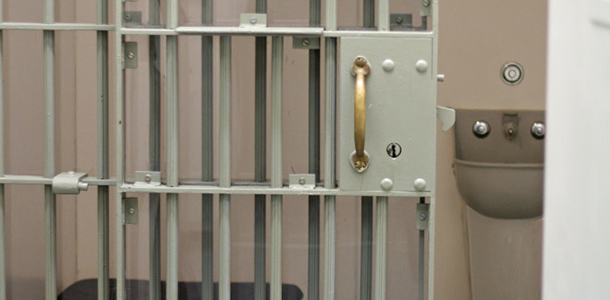
(Photo Credit: My Southborough/Flickr)
Both challenges and best practices involving the mentally ill in Los Angeles County’s criminal justice system were in the spotlight at the Mental Health Services Oversight and Advocacy Commission (MHSOAC) hearing and a Subcommittee Public Engagement Meeting this week.
The goal of the MHSOAC project is to explore strategies to divert mentally ill consumers from the criminal justice system and improve outcomes for those who do end up in the system. This week’s meetings focused on Los Angeles County to better understand the issues and challenges facing this community. Approximately 19,000 inmates are in the Los Angeles County jail system and about one-third require some mental health treatment.
The commission heard about areas that need improvement or system change from mental health clients, family members and advocates with experience in the criminal justice and mental health system.
One mental health client spoke at the subcommittee about being incarcerated with mental illness and substance abuse issues for nearly 20 years. She is currently living in a group home and just celebrated 30 days of sobriety. She hopes to stay out of jail with a place to live, support and counseling. But linking to housing and counseling are challenges that many mentally ill clients face when they are released from jail.
“It’s about time that we all recognize that people are not locked away in institutions anymore,” said Santa Barbara County Sheriff Bill Brown, the chair of the MHSOAC Subcommittee. “We can’t have people living under the bridges and bushes. We have to, as a community, step up and say this is an issue that we have to take ownership of and we have to help solve.”
The Commission also learned about challenges within the criminal justice system in dealing with the mentally ill as well as programs that have been established to improve outcomes from the District Attorney, representatives from the courts, law enforcement and the mental health department.
“The county jail was never designed for the purpose of mental health treatment, and due to its very nature as a jail, is not an environment which is ideal for treatment,” said Los Angeles County District Attorney Jackie Lacey as she addressed the Commission. Lacey added that there are ethical and fiscal issues to housing the mentally ill in the county jail, noting it costs three times as much to house an inmate with mental illness.
To address the issue, Lacey launched the Criminal Justice Mental Health Advisory Board which led to the establishment of the Office of Diversion and Reentry (ODR) within the Los Angeles County Department of Health Science. ODR was launched this summer with the goal of reducing the population of the mentally ill and co-occurring disorder inmates (those who have substance abuse and mental illness) in the county jail.
The Commission also learned about the Los Angeles Police Department’s Mental Evaluation Unit (MEU), which assists officers with mental health calls. MEU officers are paired with mental health workers to identify and de-escalate situations involving the mentally ill and link them to the appropriate services, instead of immediately booking them into jail.
The Commission will hold two more hearings and subcommittee meetings in different areas of the state within the next year. It will issue a report in fall 2017 with recommendations for the Governor, Legislature, counties, providers and other stakeholders improve outcomes.
Added Brown, “It’s not just a law enforcement issue. It’s not just a mental health issue. It’s a community issue and we all have to recognize that we have to help seek solutions.”

